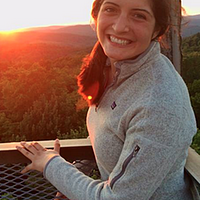Why are more young Brits not drinking? The answer is, well, embarrassing
One in four. That’s how many British 16- to 24-year-old respondents said they never drink alcohol.
It's also the largest demographic group to say that they abstained from alcohol consumption, according to a just-released survey reported by Britain's Channel 4 News. These survey results match previous studies that show a decline in drinking among British young people over the past decade.
But this latest survey, by ComRes, a market research agency based in London, begins to plumb the reasons behind the decline. One of the primary causes for abstention: embarrassment.
"Health and fitness" and "not wanting to impair their judgement" were also highly ranked reasons given for not drinking. But more than one-third – 36 percent of 16-24 year olds – agreed with the statement “it’s embarrassing when someone my age gets really drunk.”
While this was the smallest percentage among the British demographic groups surveyed, it fits with research being done in the US.
A recent Pew survey noted that American teens are increasingly involved in social media reputation management – “pruning” their profiles to fit how they would like to be perceived. This can be seen in the deleting “friends” and comments, hiding photos from one’s Facebook profile — or the 57 percent of respondents who said they chose not to post something because they worried about how it would affect their futures.
“I got really quite intoxicated, and people started taking pictures of me, and I didn't mind until they started putting them on Facebook and social media and things,” said Alicia, a 16-year-old interviewed by Britain's Channel 4 about the report. “It was just impossible to get rid of. Once you've got that mark against your name, you can't really get rid of it.”
To W. Dustin Albert, a research scientist at Duke University’s Center for Child and Family Policy, who studies peer influence and problem behaviors, the choice for many teens may be less about embarrassment and more about being discovered by a parent.
At a big party, he says, “you wouldn’t know if someone was taking a picture, or what they would do with that picture.”
Teens generally abstain from risky behavior if they are socialized by family members and peer groups to understand the dangers and negative consequences of their actions. Part of this socialization, he says, could be awareness of how every detail of daily life is now documented.
But Dr. Albert also notes that teens in particular overestimate the percentage of their peers who drink or use drugs.
To put the British figures in context, in the US., the 2008 national survey on drug use and health through the U.S. Department of Health and Human Services, found that 26.2 percent of 16- and 17-year-old respondents said they drank alcohol in the past month. Nearly 49 percent of 18- to 20-year-old respondents said the same.
The Channel 4 News report also focused on comparing the 16-to-24 data with behaviors of those respondents’ grandparents.
“The former baby boomers polled tend to drink nearly twice as often as the under 30s: an average of 2.68 days of the previous week, compared with an average of 1.36 days for their younger counterparts,” Channel 4 reported. Most respondents older than 60 reported that getting drunk at their age was embarrassing.
ComRes interviewed 509 British people age 16 to 30, among other demographic groups, late in September. The organization released its report Monday through Channel 4 News.







